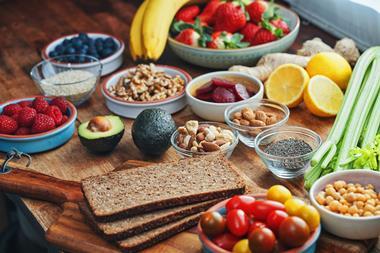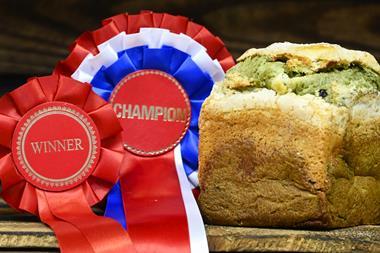The Britain’s Best Loaf 2020 competition is fast approaching, with only a few weeks left to enter.
Taking place at the Farm Shoop & Deli show at the Birmingham NEC on Monday 7 September, it offers bakers the perfect opportunity to flex their floury muscles and pit their loaves against the finest in the country. The event is sponsored by ADM, American Pan UK and Scobie McIntosh/Revent.
There are six categories, including Gluten Free, Innovation, White and Wholegrain. Due to huge the interest in sourdough and high number of entries, the category has been split into two (see below).
The winning loaf from each of the six categories will be in the running to take the ultimate accolade of Britain’s Best Loaf.
Entries close on Monday 9 March. To find out more, and to enter, visit: britainsbestloaf.co.uk.
Need more convincing? Here’s what it takes to secure a category win and even the ultimate accolade of Britain’s Best Loaf, as well as the benefits of doing so:
We judge a loaf by its cover (among other things)
A loaf’s looks don’t necessarily equate to its tastiness, but when it comes to Britain’s Best Loaf achieving the best of both worlds is important.
As 2019 champion Lee Smith, from Poppyseed Bakery in East Sussex, says about his winning Wholemeal Sourdough: “Our sourdough stands out because we put in as much effort on the appearance as we do the eating quality. Both are important for the customer.”
He should know, having won the competition in 2013, 2014 and 2016. This year, he’s on the judging panel that will be scoring every entry on external appearance, internal structure, aroma and taste.
“We allow the dough time, which helps our sourdough to be consistent and so popular,” he adds. The wholemeal sourdough has become even more popular since the 2019 win,1 with sales up 50%.
Think outside of the box when it comes to innovation
It’s fair to say that Innovation category winner in 2019 definitely thought outside the box – and that’s exactly what the judges are looking for in this category as well as perfectly baked bread.
Pappa-G’s Taste of India loaf (above), from Cardiff-based The Danish Bakery, was thought up by one of the bakery’s apprentices and was inspired by their travels in India. Taking 74 hours to produce, the loaf features chilli, garlic, cumin, coriander, turmeric, ginger and onions.
“I like to give my team a challenge and get them experimenting with the knowledge they have gained working with our bread recipes, but then make their own creations,” says The Danish Bakery founder Betina Skovbro.
In 2018, the Innovation winner was an Easter Bread by Joe’s Bakery. The winning loaf was a yeasted wheat and rye bread containing hazelnuts, raisins, cherries, mixed citrus peel and lemon zest.
The only limit in innovation is your imagination.
Get creative with sourdough
As interest in sourdough has exploded, so has the sourdough category at Britain’s Best Loaf. So much so that we’ve had to split it into two. Here’s what it looks like for the 2020 competition:
- Plain Sourdough: A loaf made 100% by fermentation using naturally occurring lactobacillus. May contain only flour, salt and water.
- Sourdough with Other Ingredients: Made 100% by fermentation, using naturally occurring lactobacillus. May contain flour, salt and water, plus additional ingredients such as nuts, seeds, vegetables and honey.
This leaves plenty of room for experimentation be it in the type of flour used or the natural ingredients added. In previous years the judges have been wowed by all manner of sourdough loaves – and they are frequently among the overall winners.
In 2018, a White Seeded Sourdough from Sussex-based Foodhaven clinched the title. It has a 30-hour fermentation and comprises strong white flour, water, salt, oil and seeds.
On the more unusual side was the 2017 winner – a Beetroot Multiseed Sourdough from Seasons Bakery in Ingleton, North Yorkshire (pictured above). The loaf is so successful, it was also named Speciality Bread Product of the Year at the 2019 Baking Industry Awards hosted by British Baker. The loaf involves a three-day process which starts with a sourdough ferment to which beetroot is added for flavour and colour. The dough is made a day later after the ferment has been fed twice. It is then left to bulk-ferment for another day before seeds are added and the earthy flavour left to develop.
Think you’ve got what it takes to make Britain’s Best Loaf? Enter via britainsbestloaf.co.uk.
































No comments yet